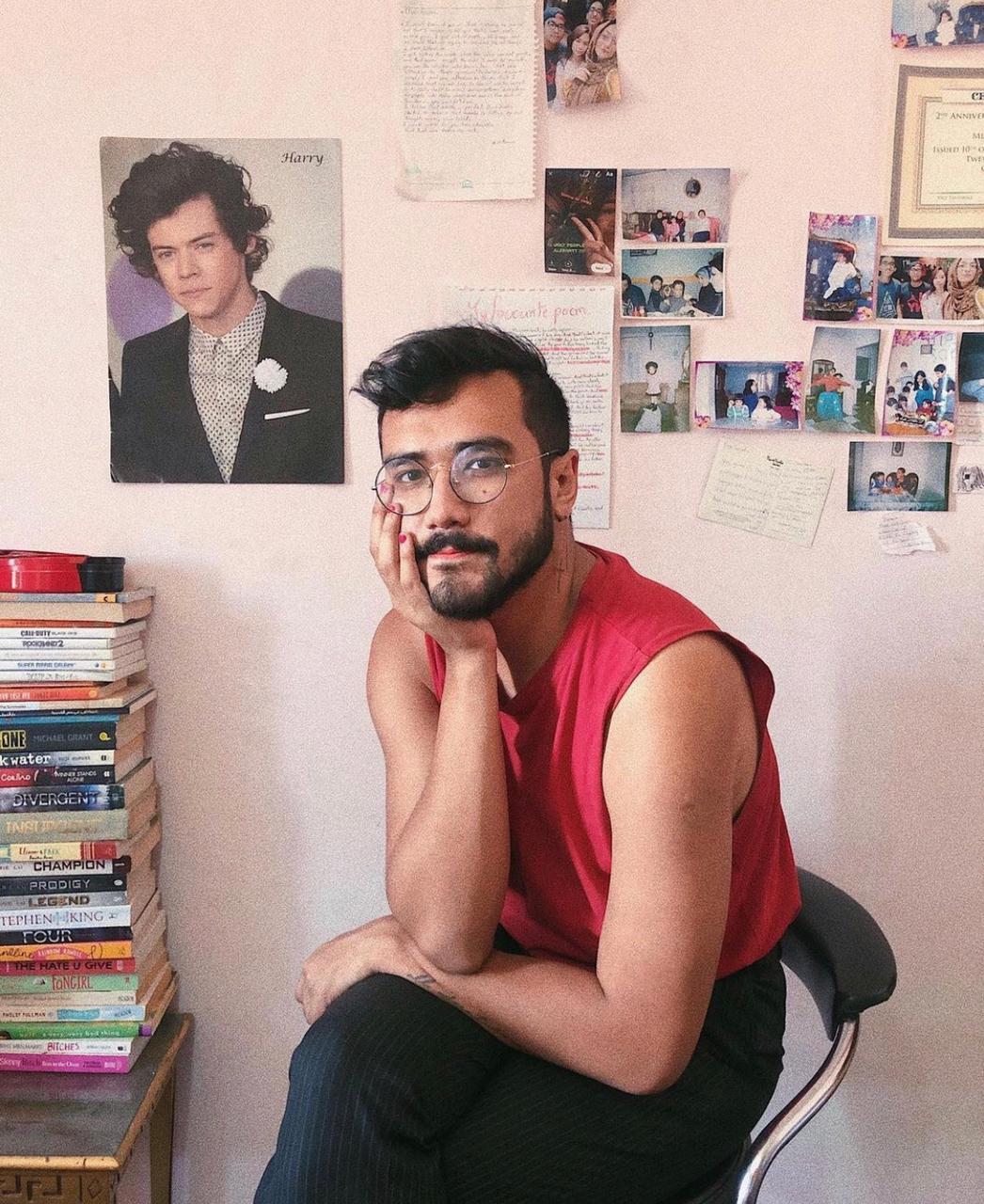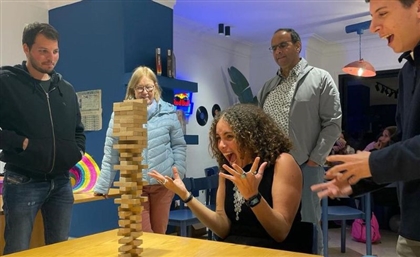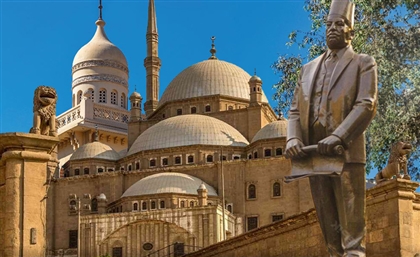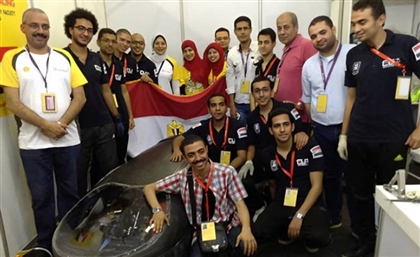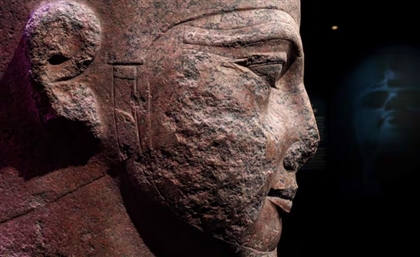Maadi's Little Manila Provides a Taste of Home for Filipinos in Cairo
Amid Chinese and Korean-owned stores lies a hefty sampling of the Philippines. Maadi's Little Manila now serves as home to the rising population of Filipinos in Cairo.
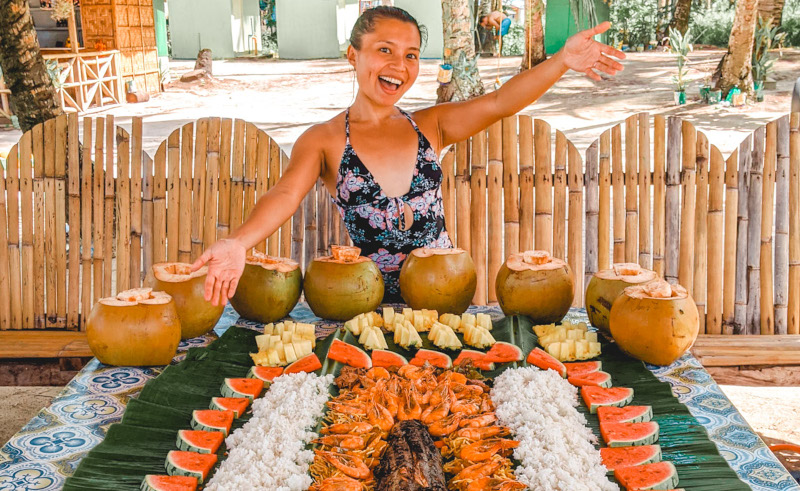
Her modest apartment stands a few steps away from the bustling Arab Street in Maadi. In a dire need to secure the financial stability of her son back home, she had given up her sheltered life in the Philippines 12 years ago then moved to Cairo a year after. “I was a certified accountant back home. I graduated from the University of the Philippines and worked in a corporate company for eight years,” said the 57-year-old woman, who asked that her identity be withheld. Now she works as an elderly caregiver in Zamalek on weekdays and as a babysitter-housekeeper on weekends.
Although she rarely finds herself in her two-bedroom Maadi apartment, she said she made a conscious choice to live in the neighbourhood along with her two roommates. Smiling as brightly as she could, she spoke enthusiastically about her favourite activities on her days off. “I definitely organise the best inihaw (barbecue) around here,” she said, adding, “You should drop by our prayer group here in my apartment. We always have a big feast after our meetings.”
Further up the avenue from her apartment are some of the most popular, if not the only, Filipino restaurants in the area. Right off the main street on Road 15 is the Holy Family church, where Filipino community events and markets are held every Friday. Establishments such as Tinapai and Bahay Kubo in Old Maadi, Pinoy in Degla and Sunshine in Arab Maadi are scattered throughout the area. It’s as if she never left the Philippines.
“10 years ago, me and my husband moved here from the Philippines to Maadi with our son and daughter to start our new lives, and I never truly expected to feel the way I do here. You just feel like you belong,” says Alma Roberts, 40, a singer with over 25 years of experience in the field. “I can even see it on my children’s faces, especially when we order food from places such as Bahay Kubo. Having pinakbet and halo-halo instantly takes us back home,” she adds, naming a popular Filipino vegetable dish and dessert respectively.
“I started singing when I was nine and travelled abroad to follow my dreams at the age of 18,” Roberts continues. “I sang professionally in Dubai, Abu Dhabi, Bahrain and many other countries. I sometimes perform at Ace Club, the local expat club which I’m a member of.”
A report by the Filipino Embassy in Cairo revealed that there are over 4,500 Filipinos living in the country, with almost half of them living in Maadi. Little Manila has grown to be one of the most diverse areas in the city. Amid Chinese and Korean-owned stores lies a hefty sampling of the Philippines. The area now serves as home to the rising population of Filipinos in Cairo.
Food is a very important part of Filipino culture. It provides an ample taste of home. The oldest Filipino establishment in the area is Pinoy, a restaurant that has been serving authentic Filipino meals for more than four years. They serve native dishes such as kare-kare, an ox-tail stew in peanut sauce and served with shrimp paste. Another staple food is adobong manok (also known as adobo), the unofficial national Filipino dish that basically consists of chicken cooked in soy sauce, vinegar, and garlic.
Wilma Prudente, owner of Pinoy, puts into numbers the popularity of Filipino food establishments in the area. “When we first opened our doors, most of our customers were Filipinos as expected. After all, the word Pinoy means Filipino in Tagalog,” Prudente says, naming the official language in The Philippines. “But we now see customers from other backgrounds. It’s very, very diverse in Maadi. We also have a lot of Asian, European, and even Egyptian people who come here to taste our food.”
Prudente also talks about the fact that Filipino cuisine is booming in Cairo. “I’ve started another business called Bahay Kubo, which means a small tiny home in my mother tongue. This project is much smaller in size, reflecting its name, and it provides different Filipino food than what Pinoy serves. This was only made possible because of how Cairenes, especially Maadi ones, found a new love for our food.
Events for the general Filipino community, Muslims and Christians alike, in Maadi are also often held at the Born-Again church on Road 9. Culture, language, sports and art workshops take place there periodically.
“I moved to Maadi five years ago when I got a teaching job in Cairo,” says Jane Lopez, a 33-year-old teacher from Quezon district in the Philippines. “I absolutely love it here, it feels like I never left home sometimes. I enjoy going to the Holy Family church so I can stock up on Chippy.” (A popular brand of Filipino chips). “But my favourite part of the week is Tuesdays, that’s when me and my girls go for karaoke at Ace Club.”
Many Filipinos migrate to seek refuge from a broken economy and unreliable government in their homeland. With so many struggles that come with moving to a demanding environment such as Cairo, many can find comfort in Maadi. Since the area is very diverse, all establishments are accessible not only to Filipinos but also to other minority groups. Food stores, especially restaurants, are often admired by non-Filipinos. The same goes for community events.
Indeed, Maadi’s Little Manila has provided a safe haven, a home away from home, for Filipinos trying to make a living here in their newly adopted country.
- Previous Article Sound of Noise’s ‘DAWASH 002’ Sheds Light on Cairo’s Experimentalists
- Next Article Lazareeta Brings Alexandria's Street Food to Maadi



